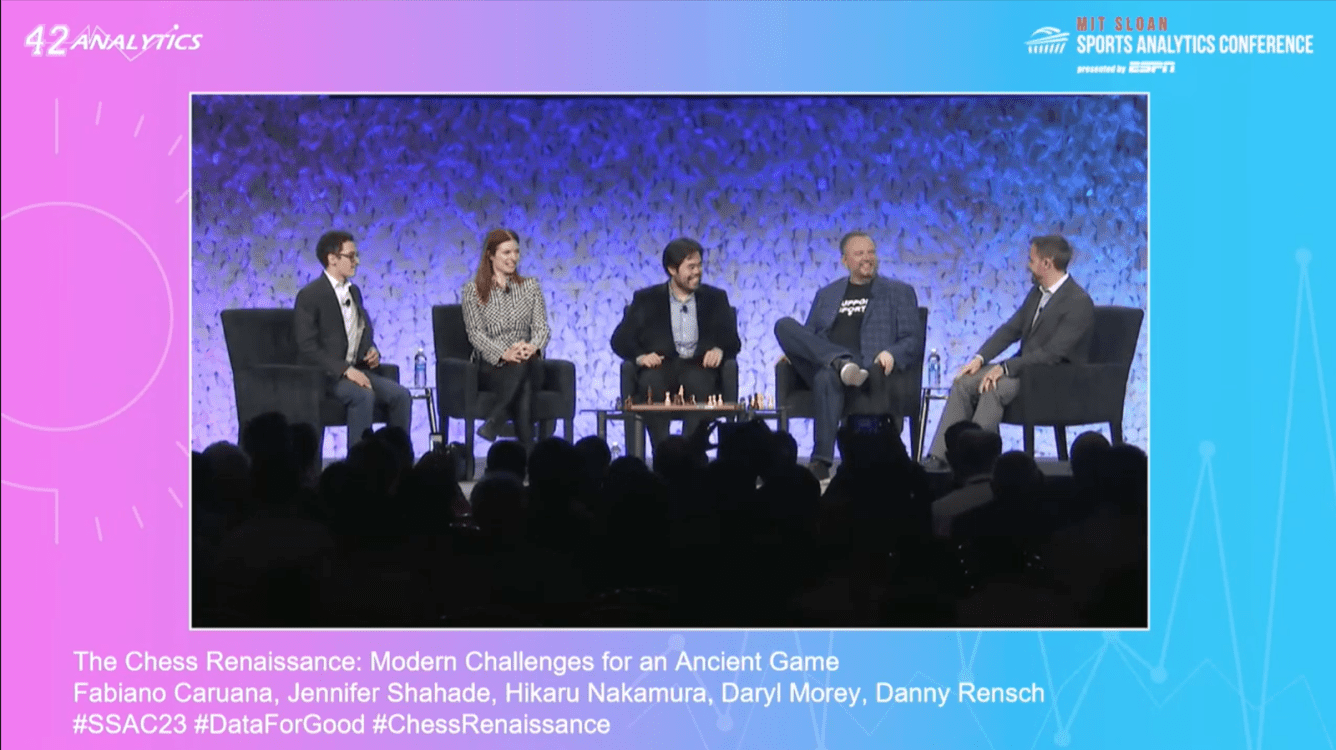
'The Game Should Be Willing To Adjust': Caruana, Nakamura, Shahade Talk At MIT
On Friday, top GMs Fabiano Caruana and Hikaru Nakamura as well as WGM Jennifer Shahade took part in a panel discussion at the MIT Sloan School of Management's annual Sports Analytics Conference in Boston. The three talked about the further growth of the game of chess together with Daryl Morey, the President of basketball operations at the Philadelphia 76ers, and host IM Danny Rensch, Chief Chess Officer at Chess.com.
It was the fifth time that Chess.com was present at the conference, but never before during a time when there was so much interest in the game. Titled "The Chess Renaissance: Modern Challenges for an Ancient Game," the panel discussion was broadcast live on YouTube. You can watch it here, starting at 9:26:58. Below is a selection of quotes from the discussion, which included topics such as cheating, new playing formats, and the future of chess.
On cheating
Nakamura: "I think that going forward, we're probably gonna keep hearing more and more about such topics. I think now that it's out there it does need to be taken seriously by the governing bodies and we'll see where it goes. (…) I think that certainly, the game will be better off because of the fact that people are aware of it and we treat it like a serious issue."
How is it to play against someone whom you think is cheating?
Caruana: "That's one of the biggest problems with online chess, especially. And this is a problem that became known to the outside world following the whole Magnus against Hans scandal, but before that, it was festering beneath the surface for a lot of players and I think at many levels of chess. From beginning levels, this is something that affects online play, up to the very top level. Even if it maybe wasn't there, the suspicions and the paranoia were there. Organizers in large part turned a blind eye to it because it's a very difficult and uncomfortable problem and a problem that doesn't even have a clear solution if it has one at all. So, many organizers just prefer not to address it which is, in some way, why it was a good thing that now people are forced to address it and organizations, the people responsible for chess, are now forced to address it because the public wants answers, or at least wanted answers.
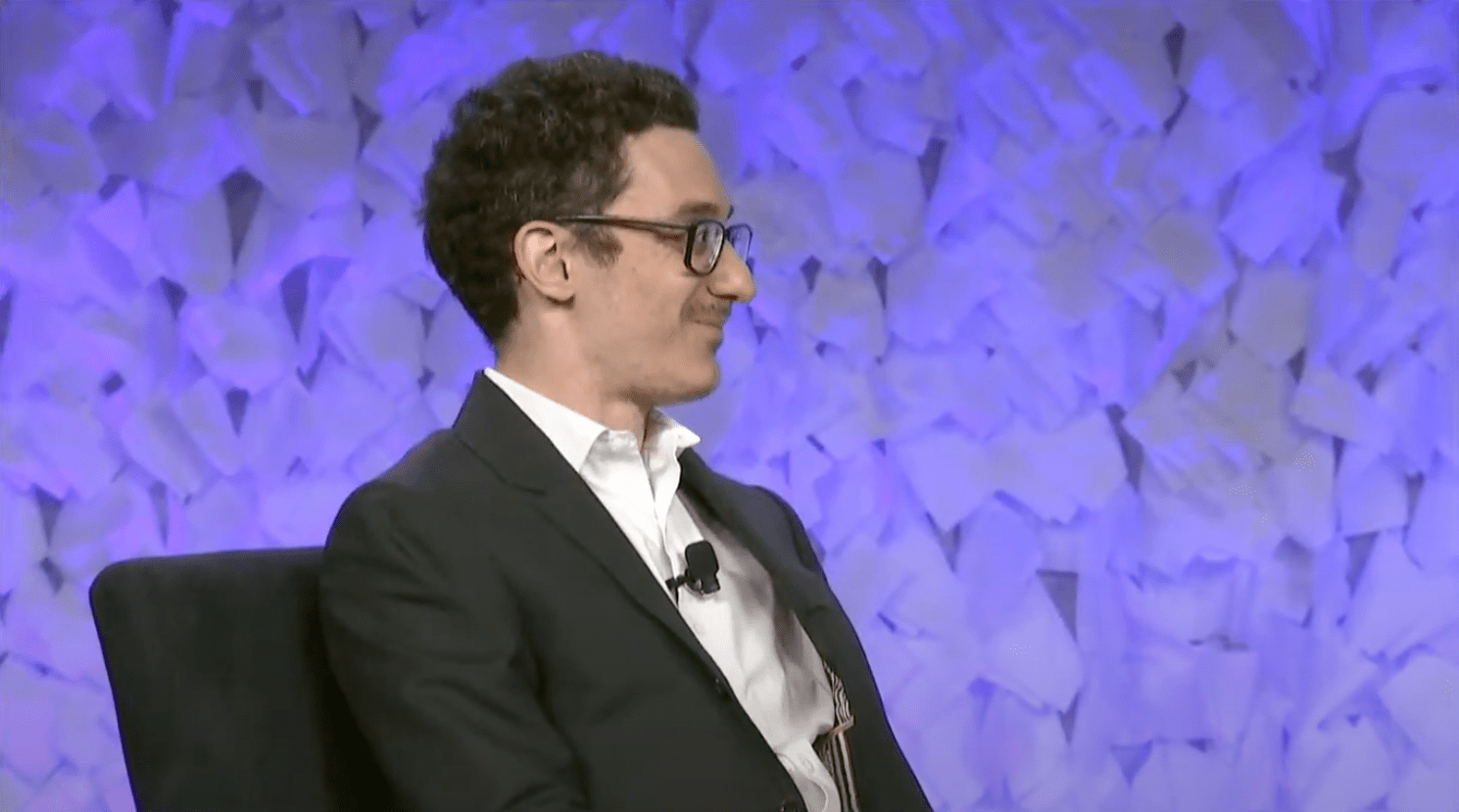
That being said, from the point of view of someone who thinks they're being cheated against, even if you're not, it really dramatically lowers your level. Because it gets in your head. You don't know if you're playing against a real opponent, where you can deal with the normal psychological thing, or if you're playing against someone, or something, that will beat you no matter what."
How has the chess world dealt with the scandal?
Morey: "Chess has generally been ahead. They were the first to use computers in a significant way in their sport. They were the first to do systematic cheat detection in their sport. You were sort of late to a scandal that was on the front page of every single newspaper. A lot of times when scandals happen, the mistakes happen early. I know enough about cheat detection, I knew you couldn’t tell if someone was cheating just from one game. I knew some background that he had cheated online. I felt it was behooved that you needed to still presume innocent until guilty in an over-the-board situation and let it play out. If someone is cheating, eventually they'll be discovered. Just like in any other sport, there have been steroid scandals, there's been doping scandals, there's been everything. Eventually, these people are found out. It's better to let them hang themselves than to jump the gun. But I feel like the chess community got it right, eventually."
Streaming and podcasts
Nakamura: "It's very hard to know whether it was because of the circumstances with Covid and what was happening in 2020, that sort of changed the world of chess, being able to stream and create content, or whether it would have happened anyway, first of all. I first started playing chess on the internet in the late 1990s. There was the Internet Chess Club. I would actually play games and write out comments, it's called kibitzing. Of course, these days I actually talk, I don't type, so it's a little bit different but I think it was a long time coming. Certainly, there are so many people who love chess, and being able to share that, you can't really do that when you're simply competing. What has happened with myself, there are some other creators like GothamChess, the Botez sisters, it's just amazing that we're able to share the game with so many more people in a way that we weren't even 10 years ago."
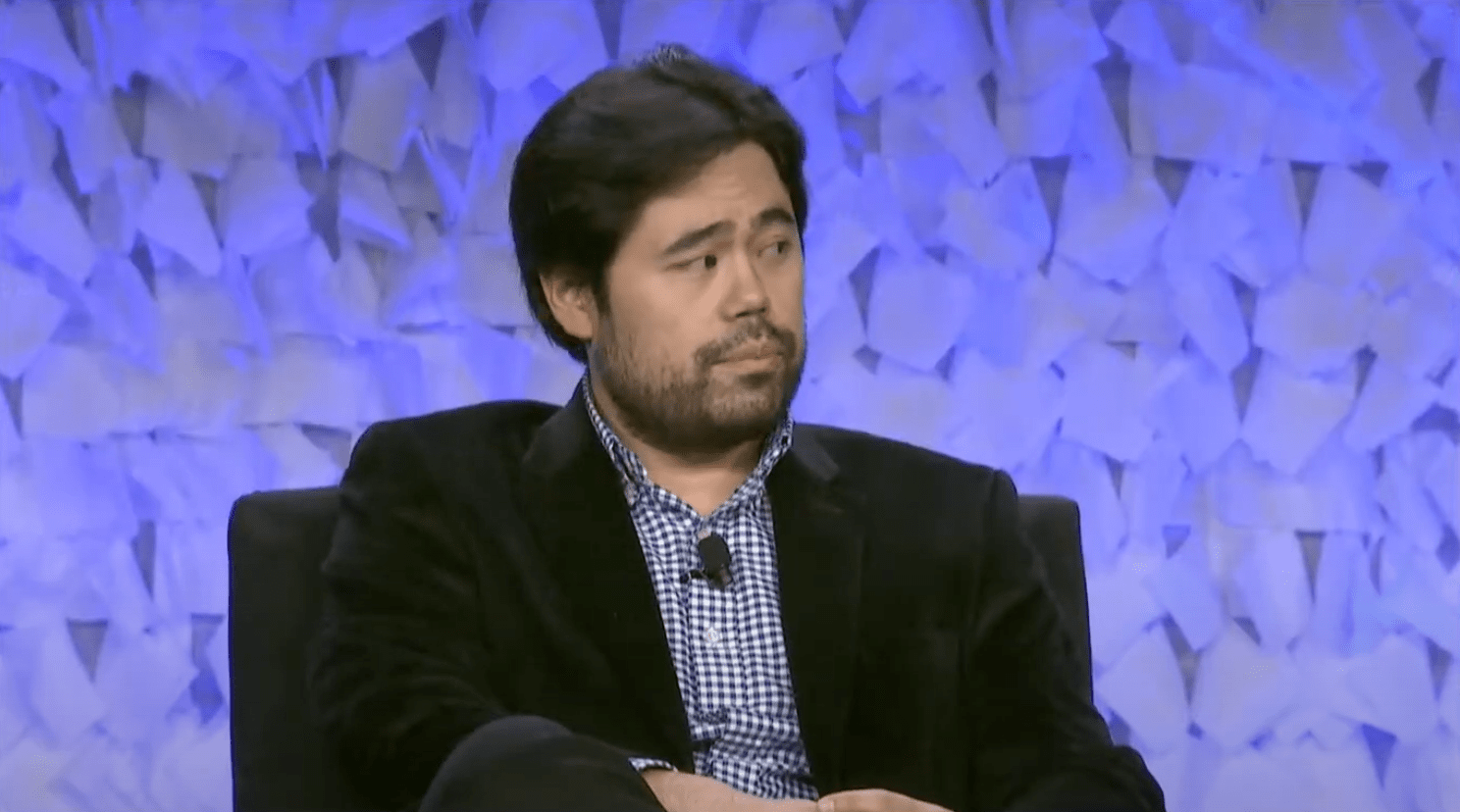
Caruana: "I think one of the reasons chess became even more popular, and obviously there was an explosion in popularity, but one of the great things that chess fans can learn about chess from is there's a lot of ways to hear thoughts of top players. (…) If you're a newcomer to chess, in a way that wasn't possible, let's say going back 20 or 30 years, you can hear in real-time about the thoughts of top players and their thought processes during the game. So that's a very special thing. That's one of the ways in which technology has brought chess to every level, not just to the top level, but for beginners as well.
Will chess continue to grow?
Nakamura: "I think chess will continue to grow. One of the big differences between chess versus let's say a lot of the esports or games, and this specifically applies to YouTube, is that most games have changed. They have, like, patches, bugs, and all these other things. So when a game changes, if you watch the Fortnite of 2018-2019, when Ninja was playing and he had this big rise, you can watch his videos but now if you go on YouTube and you watch a video of Ninja playing Fortnite from that time period, the video is irrelevant. There's nothing about it that is applicable to the game today. With chess, say there's a video of me from 2017, that's still relevant even today. The fact that chess is very evergreen and you can watch a video now or in 10 years from now, it will still be the same, that is a big advantage chess has over just about any other game really."
Does chess need to change in terms of time controls, tiebreak formats, Chess960?
Caruana: "This is the reason why Magnus is essentially not playing the next world championship, because he doesn't like the format. But that might be for purely personal reasons, just because he doesn't like all the preparation that goes into it and the amount of time and stress that he has to put into it. But I think there's a place for bullet chess, for 30-second chess, up until the long, classical, one-game-a-day matches that we're used to historically. I think where the interest comes in is mostly in the stakes. Nobody is going to watch a one-game-a-day match if there's nothing at stake, but if it's the world championship, if there's a lot of money and prestige and the historical relevance that the players both have invested in the match, and everyone is very interested. We see that the world championship consistently pulls the biggest numbers in terms of viewership because people want to find out who is the next world champion."
Shahade: "I think there's absolutely room for everything, because of the growth of chess. I think that really helps to motivate people, that there's different ways that they can succeed in chess. Some people can be really good at blitz, rapid, classical. Of course, we're talking about professional levels, but even for an amateur-level player, the fact that you might be terrible at bullet but you are really good at bughouse or really good at puzzles. This idea that you can be a content creator even if you're not that good at chess. That there's different ways to be good at chess I think is really powerful."
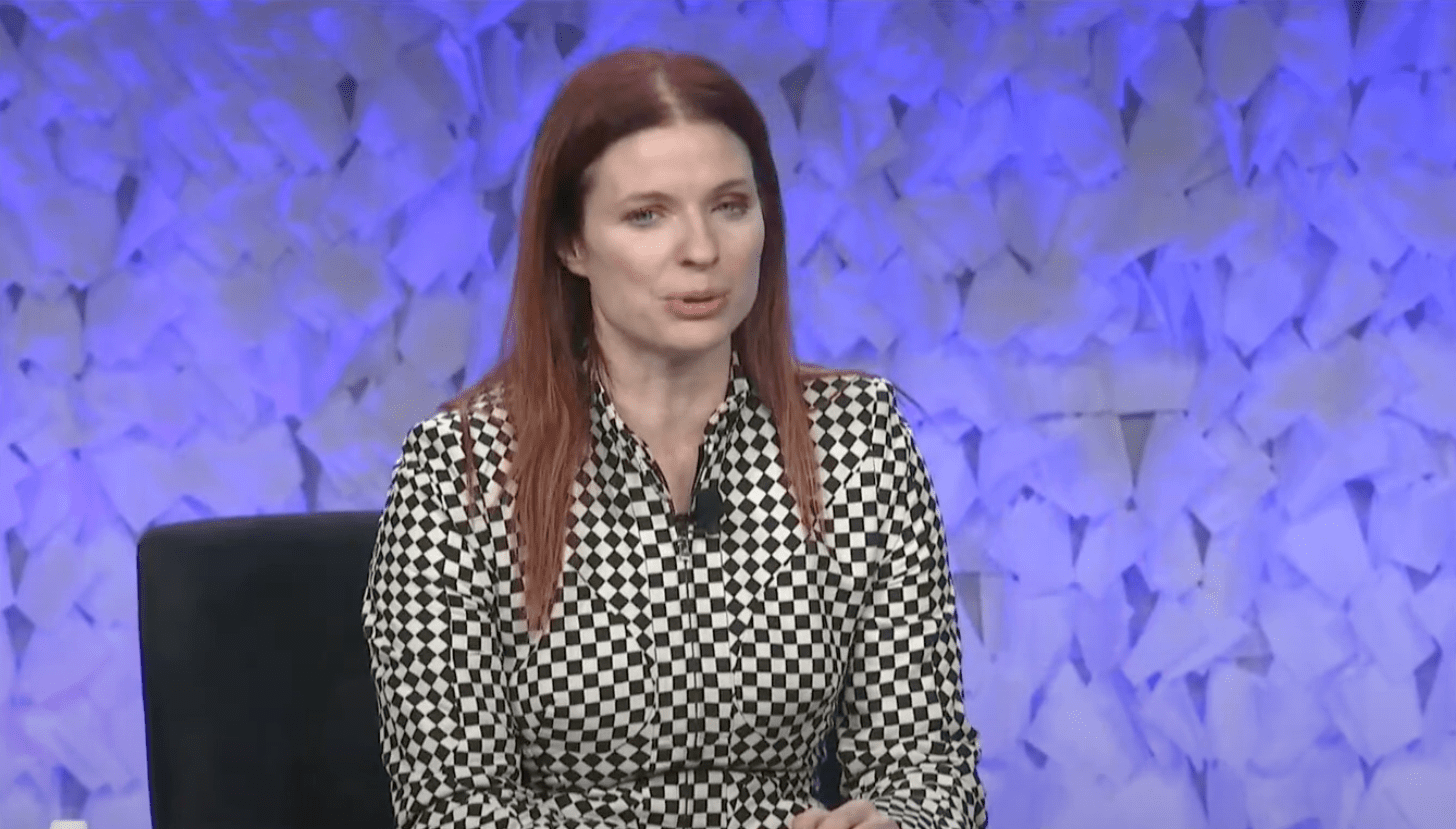
How to keep the chess boom going
Nakamura: "There's also the big elephant in the room which isn't addressed, which is the fact that when we're talking about going mainstream with chess, or success, a lot of it has to do with what the prize funds are, how much money people earn as professional players. When you look at it from the context of trying to bring more money into the game, it's all about the audience. What does the audience want to see? In this modern world, eyeballs drive everything. Because of that, I think the formats that are relatively shorter are going to attract sponsors and viewers much more than longer formats. (…) I think it's only going to keep moving in that direction."
Morey: "The world chess championship drives the most interest but it probably has the worst structure of any world championship of any sport you can ever envision. Not only are we talking about the timing being wrong. Golden State would have won 12 straight titles because it would be like, everyone fights and then they only play Golden State. Everyone should have to fight. Then you play 12 games. Everyone would like to see exciting things. Like three, but 12? The entire structure of the world championship is designed to make people less interested. You should have a bracket, everyone loves brackets!"
Nakamura: "You have this cultural thing where because you have this tradition of having a classical world champion with this format for like 100 plus years now, people don't wanna change or the governing bodies don't wanna change that format. Again, it comes down to the practical nature of making changes versus keeping things the same. I think, at the end of the day though, if you want the game to grow, if you want more people watching and you also want the professionals to earn more money, changes should be happening."
Morey: "Playoff formats change constantly, different number of games, different number of teams. The only sports that win are the ones that are reacting to their audience and making changes to the rules, making changes to the structure such that drive interest, drive revenue, which drives better players, it all becomes a virtuous cycle. Right now at the classical world championship level, they got a vicious cycle that's working in the anti-way. It's less interesting than any other format of chess. Now you have the best player not even wanting to play. Can you think of a bigger failure of a sport than when you have the best player who doesn't want to play, to try and win? I've never heard anything like that."
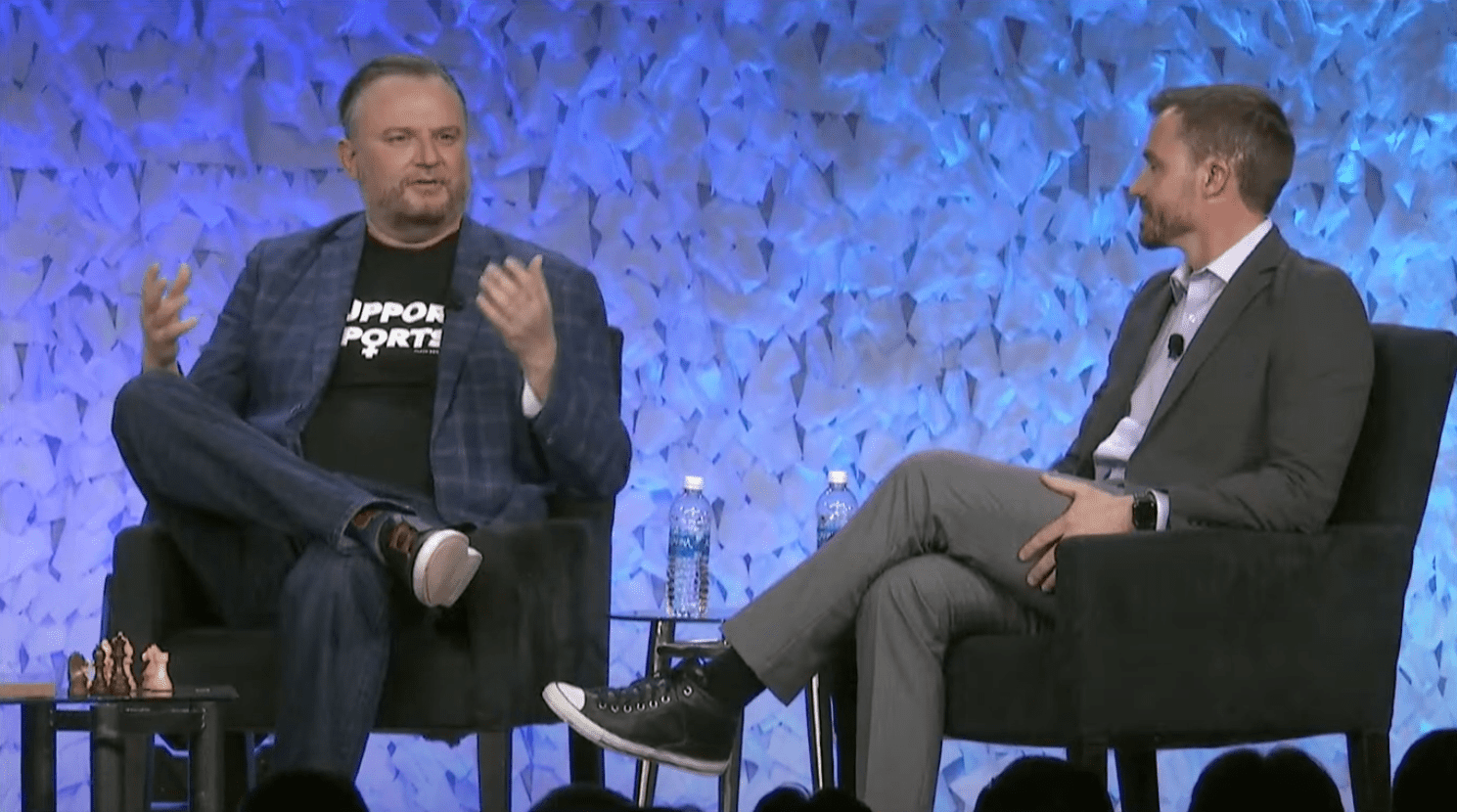
Caruana: "We don't need to speculate about the knockout format, because we had a knockout format for years and nobody liked it. We had world champions from I think 1996 to 2004 in terms of the knockout format and nobody cared about who the champion was."
Morey: "Because it didn't have the history, is my guess."
Rensch: "Maybe they didn't care at the time. The audience wasn't what it is now. It also was never presented in the same way that the classical world championship was. (…) As the audience changes and we learn what they want, the game should be willing to adjust."
When will chess be ready to sell out arenas with live tickets for fans?
Nakamura: "I think it involves the right personalities certainly. If we're talking about the professional, I think we're still quite a way off from that. I think we're gonna see a new generation of kids rise to the top. If we're talking more like influencers, similar to what happened with chess boxing, I think that could happen almost tomorrow, with the right influencers, for sure.
"For me specifically, when I was growing up playing professionally, it's really all about myself. This is myself against the other competitors. There aren't fans that are watching in person, even online frankly, there isn't really the fanbase. So, when I stream now, it feels like there is a big community, it does almost feel like I am competing and I do have all the support from the fans in a way that never existed at any other time in my chess career.
"For me, I think that that's why when you look at the future if you have fans, if you have, like, 150,000 people watching Magnus and myself playing in the Speed Chess Championship match last December, that is the future. That's much more important than selling out arenas."
Morey: "That's 10 arenas."
Very nice to meet some grandmasters as well as the Chief Chess Officer of @chesscom at the @SloanSportsConf! @DanielRensch @JenShahade @jenniferyuuu. @GM_Hess #chess pic.twitter.com/zus23FER4b
— S. Matthew Liao (@smatthewliao) March 4, 2023
Is chess ever going to be stale?
Caruana "We've been hearing about the death of chess for decades…"
Rensch: "It has been greatly exaggerated."
Caruana: "Yeah, it hasn't happened. I think we found that although computers got super strong and now can beat humans all the time, it doesn't really change the human element, which is what people really wanna see. They wanna see the mistakes, they don't wanna see perfect chess. They wanna see the clash of personalities as well, they wanna see their favorite chess player, not just because it's the best chess player but also because they like how that person talks or presents themselves. So it's not just about the chess playing, we really need to see personalities in chess and I think that's what has developed in recent years.
"This is one of the issues now with analyzing chess, which is that very often you get an evaluation that shows 0.00 which means the position the computer evaluates is objectively drawn. And this is completely unhelpful in analysis because it doesn't take into effect the human element and the psychological element, and how people make mistakes. So it doesn't matter if the position is effectively won, lost, or drawn, because it's more about the difficulty of the moves for both sides. That's one of the more difficult sides of analyzing chess now, that you have these computers that have become a little bit too strong."
Final thoughts on growing the game
Caruana: "I think it has its own momentum now. It might carry itself. I do think there is a space for, similar to how the chess boxing was presented if you get the right people behind it, people who can bring those fans from other esports into chess, then you could get a really good live event going."
Morey: "There's been sort of a narrow set of sponsors, people who support chess. It seems it still needs to have to broaden out so that it's across all the categories like the NBA has. We have a broad base of sponsors, TV money, everything that sort of perpetuates everything."
On attracting more women
Rensch: "The female userbase is still under 30 percent, so we wanna drastically increase that, but it's higher than it's ever been."
Shahade: "It's great and really exciting and heart-warming to hear about all the percentages of females on Chess.com skyrocketing, but let's be honest. There's still a lot of underrepresentation of women, especially when it comes to leadership in chess, to chess coaches, to chess authors. I think if we improve that, the numbers are gonna explode. And that is one beautiful thing about chess, that it crosses gender and age boundaries, that you can have people competing of all different types. I think we really need to lean into that more. LGBTQ+ representation in chess can certainly be improved a lot, especially at the international level, where sometimes events are held in places where there aren't good human rights for members of the LGBTQ+ community. I think those are some areas I'd really love to see chess grow into."
A fun twist on the classic chess game. Had a blast playing Chess Hand and Brain Demonstration at the @SloanSportsConf with @GM_Hess, @dmorey, @jenniferyuuu and @DanielRensch. #SSAC23 pic.twitter.com/tu9kupQ9I4
— Jason Robins (@JasonDRobins) March 4, 2023
The goal of the MIT Sloan Annual Sports Analytics Conference is to provide a forum for industry professionals (executives and leading researchers) and students to discuss the increasing role of analytics in the global sports industry. MIT Sloan is dedicated to fostering growth and innovation in this arena, and the conference enriches opportunities for learning about the sports business world. The conference is open to anyone interested in sports. Founded by Daryl Morey (MIT Sloan ’00) and Jessica Gelman (HBS ’02) in 2006, the Conference is chaired by Gelman and Morey and organized by MIT Sloan students.


